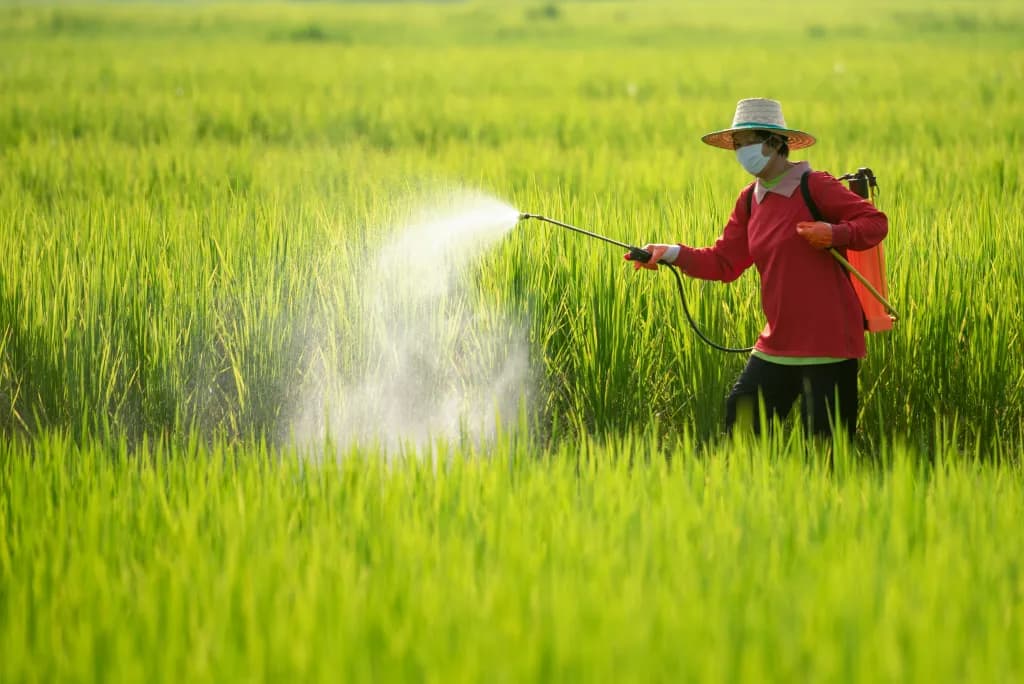We're loading the full news article for you. This includes the article content, images, author information, and related articles.
Despite a 2020 pledge to halt the practice, the European Union's export of hazardous pesticides banned on its own farms has dramatically increased, leaving Kenyan farmers exposed to toxic chemicals and costing the nation billions in rejected agricultural exports.

The European Union is exporting a growing volume of pesticides deemed too dangerous for its own fields, with significant quantities reaching Kenya and other African nations, a Streamline News investigation has confirmed. A September 2025 report by the Swiss non-profit Public Eye and Greenpeace UK's investigative unit, Unearthed, revealed that EU member states approved the export of nearly 122,000 tonnes of banned pesticides in 2024. This represents a 50% increase from the 81,000 tonnes reported in 2018, even after accounting for the departure of the UK, a former major exporter.
This escalating trade persists despite a high-profile commitment from the European Commission in October 2020 to “lead by example” and end the practice as a cornerstone of its 'European Green Deal'. Five years on, a legislative proposal to enforce this ban has not materialized, allowing chemical companies to continue producing and shipping substances that European regulators have determined pose unacceptable risks to human health and the environment. A Commission spokesperson stated in September 2025 that they share the concerns and are evaluating options to address the issue.
For Kenya, the consequences of this policy contradiction are severe and multifaceted. A cross-border investigation published in January 2023 confirmed that numerous pesticides prohibited in the EU are readily available and widely used by Kenyan farmers, often without full awareness of their effects. Chemicals such as chlorpyrifos (linked to neurodevelopmental damage), mancozeb (considered toxic for reproduction), and imidacloprid (a neonicotinoid highly toxic to bees) are among those used in Kenya after being banned or severely restricted in Europe. Health professionals in agricultural regions have reported rising cancer rates, while farmers and beekeepers note the disappearance of vital pollinators.
The economic fallout has been devastating, creating a “boomerang effect” where the banned chemicals return to the EU as residues on food imports. According to the Kenya National Bureau of Statistics' 2025 Economic Survey, the value of Kenya's fresh vegetable exports plummeted by nearly 54%, from KSh 50.9 billion in 2023 to KSh 23.4 billion in 2024. This dramatic decline was primarily caused by the rejection of Kenyan produce, particularly French beans and peas, at EU ports due to pesticide residues exceeding the Maximum Residue Levels (MRLs). The Agriculture and Food Authority (AFA) reported that MRL-related interceptions of Kenyan vegetables rose from 25 in 2023 to 57 in 2024.
Faced with mounting health concerns and economic damage, the Kenyan government has initiated significant regulatory action. On Monday, 23 June 2025, East Africa Time, the Ministry of Agriculture and Livestock Development announced a major crackdown following a comprehensive review by the Pest Control Products Board (PCPB). The government ordered the immediate withdrawal of 77 pesticide products from the market, restricted the use of 202 others, and placed an additional 151 products under review, prohibiting their import and use until a final decision is made by December 2025.
Crucially, the Ministry mandated that any pest control product considered for registration in Kenya must first be registered in its country of origin. Furthermore, the importation of any pesticide molecule not approved for use in the EU, USA, Canada, or Australia is prohibited pending the final review. This move aims to close the loophole that allowed European companies to sell products in Kenya that they could not sell at home. Among the restricted chemicals are chlorpyrifos and imidacloprid, now limited to specific non-open-field or termiticide uses.
The trade is facilitated by the Rotterdam Convention, a UN treaty that operates on a principle of “Prior Informed Consent” (PIC). The convention does not ban chemicals but aims to ensure importing countries are informed about the hazardous substances they are receiving and formally consent to their import. Critics argue this system places an undue burden on regulatory bodies in low- and middle-income countries, which may lack the resources to fully assess the risks of chemicals already deemed unsafe by wealthy nations. The continued export of banned pesticides from the EU highlights what organizations like Swedwatch and the Kenya Organic Agriculture Network (KOAN) call Europe's “toxic double standards.” While some EU member states like France and Belgium have moved to enact national export bans, a unified, bloc-wide prohibition remains elusive, leaving Kenyan farmers and consumers vulnerable.
Keep the conversation in one place—threads here stay linked to the story and in the forums.
Sign in to start a discussion
Start a conversation about this story and keep it linked here.
Other hot threads
E-sports and Gaming Community in Kenya
Active 9 months ago
The Role of Technology in Modern Agriculture (AgriTech)
Active 9 months ago
Popular Recreational Activities Across Counties
Active 9 months ago
Investing in Youth Sports Development Programs
Active 9 months ago